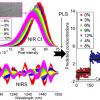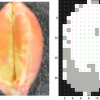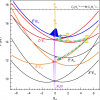
Tinnitus refers to hearing sounds such as ringing or shrieking which are not present externally. This condition affects up to 1 in 5 adults, and in its chronic, severe form can lead to depression and stress. Despite its wide prevalence, there is currently no clinical test to objectively measure or assess tinnitus. Lack of an objective measure hinders development of treatments, to the extent that there is currently no reliable solution available for this condition.
The study has used functional near infrared spectroscopy (fNIRS) which measure changes in brain oxygen levels. Researchers analysed fNIRS data collected at rest and in response to auditory and visual stimuli from individuals with tinnitus and a group of volunteers without tinnitus. Their findings showed differences in fNIRS signals between the groups at rest and reduced responses in the control group. Machine learning algorithms were used to combine signal features from the different conditions and showed the ability to predict whether an individual’s fNIRS recordings belonged to a mild or severe tinnitus sub-group with high accuracy. These findings show great promise for use of this technique to assess new treatments or monitor the effectiveness of treatment programs on patients.
Results of the study were published in PLOS ONE.















